Collected Works of Fyodor Dostoevsky (11 vols.)
Digital Logos Edition
Overview
Fyodor Dostoevsky was born into modest nobility and lived lavishly as a military engineer while running in liberal utopian literary circles. He was sentenced to death, pardoned at the last moment, and served four years of Siberian hard labor. He became disillusioned with human nature, gambled himself into poverty, rose to celebrity, and wrote novels that plumb the darkest depths of human psychology with as keen an eye as any author before or since. Collected here are 21 of his novels, novellas, and short stories, including the genre-defining Notes from Underground, the intensely cerebral classic Crime and Punishment, and his epic last novel The Brothers Karamazov.
While serving his hard labor sentence he read nothing but the New Testament (the only book allowed in prison), which profoundly influenced his later works. His mature novels are replete with themes of human depravity, moral searching, and Christian redemption. These volumes contain some of the earliest English translations, most from the prodigious and eminently readable Constance Garnett, who introduced the English speaking world to the Russian novel, and set the standard for generations to come. In the Logos editions these texts are fully indexed and searchable, with all Scripture references available on mouseover, helping you explore the human psyche with the great literary psychologist like never before.

- 21 of Dostoevsky’s novels, novellas, and short stories in 11 volumes
- Classic translations from Constance Garnett
- More than 5,000 pages from literature’s foremost psychologist
- Title: Collected Works of Fyodor Dostoevsky
- Author: Fyodor Dostoevsky
- Volumes: 11
- Pages: 5,284
- Resource Type: Literature
- Topic: Fiction
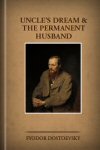
Uncle’s Dream and The Permanent Husband
- Translator: Frederick Whishaw
- Publisher: Vizetelly & Co.
- Publication Date: 1888
- Pages: 307
This volume contains Frederick Whishaw’s translation of Uncle’s Dream and The Permanent Husband.
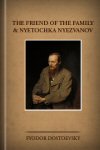
This volume contains Constance Garnett’s translation of The Friend of the Family and Nyetochka Nyezvanov.
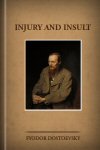
Injury and Insult
- Translator: Frederick Whishaw
- Publisher: Vizetelly & Co.
- Publication Date: 1887
- Pages: 358
This volume contains Frederick Whishaw’s translation of Injury and Insult.
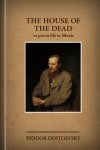
This volume contains a translation of The House of the Dead, or Prison Life in Siberia.
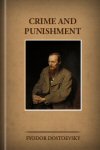
This volume contains Constance Garnett’s translation of Crime and Punishment.
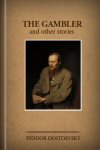
This volume contains Constance Garnett’s translation of The Gambler, Poor People, and The Landlady.
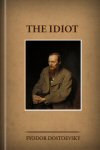
The Idiot
- Translator: Frederick Whishaw
- Publisher: Vizetelly & Co.
- Publication Date: 1887
- Pages: 489
This volume contains Frederick Whishaw’s translation of The Idiot.
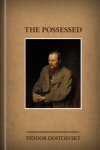
The Possessed
- Translator: Constance Garnett
- Publisher: William Heinemann
- Publication Date: 1913
- Pages: 663
The volume contains Constance Garnett’s translation of The Possessed.
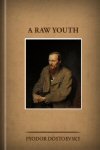
A Raw Youth
- Translator: Constance Garnett
- Publisher: The Macmillan Company
- Publication Date: 1916
- Pages: 575
This volume contains Constance Garnett’s translation of A Raw Youth.
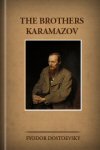
This volume contains Constance Garnett’s translation of The Brothers Karamazov.
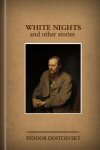
This volume contains Constance Garnett’s translation of White Nights, Notes from Underground, A Faint Heart, A Christmas Tree and a Wedding, Polzunkov, A Little Hero, and Mr. Prohartchin.
Fyodor Dostoevsky was born to minor Russian nobility in 1821. He entered the military academy at age 17. While an engineer in the army, he translated works from French and wrote his first fiction for money on the side. He became a member of the utopian socialist Petrashevsky circle. He was arrested for reading banned political literature and sentenced to death by firing squad in 1849. The execution was stayed at the last moment when a letter arrived from the Tsar pardoning him. Instead, Dostoevsky was exiled to Siberia and four years hard of labor, shackled hand and foot. During his sentence, the only thing he could read was the New Testament. Upon his release, his gambling addiction frequently left him in poverty, and he began a financially tumultuous marriage to his secretary. He died in 1881 after suffering a pulmonary hemorrhage. Together with Tolstoy, he is regarded as one of the greatest and most influential novelist of Russian literature’s golden age.
Reviews
5 ratings

Scott J Sherwood
5/23/2016

G
5/1/2015
AeliusCicero
6/19/2014

Perregrin
4/28/2014

Allen Bingham
4/12/2014
Ken Sherwood
8/4/2013
I have so far only read part, mind you, quite a parge part indeed, of Crime and Punishment. Personally, I don't find it an easy flowing style for reading but have been constantly amazed and impressed by the author's attention to detail and his acute observations. As a retired copper, (British police officer), and with my experiences of the workings of devious minds, I'm impressed with his insight into human nature, especially the darker aspects. (I'm not too sure quite what that says about me???) I confess that I have put the book aside with the intention of completing it at a later date and maybe this is the incentive I needed to complete it. As I've started reading it in book form, I think I will complete it by that medium, perhaps because I have yet to be convinced that novels are suitable for electronic reading, I like the feel of the hard copy in my hand, even though I may not infrequently lose my page. However, this is an ideal opportunity to get more of Dostoevsky's works at a good price so I have placed my order and will be able to read them on my I-pad at my leasure - without losing my place! Eventually.